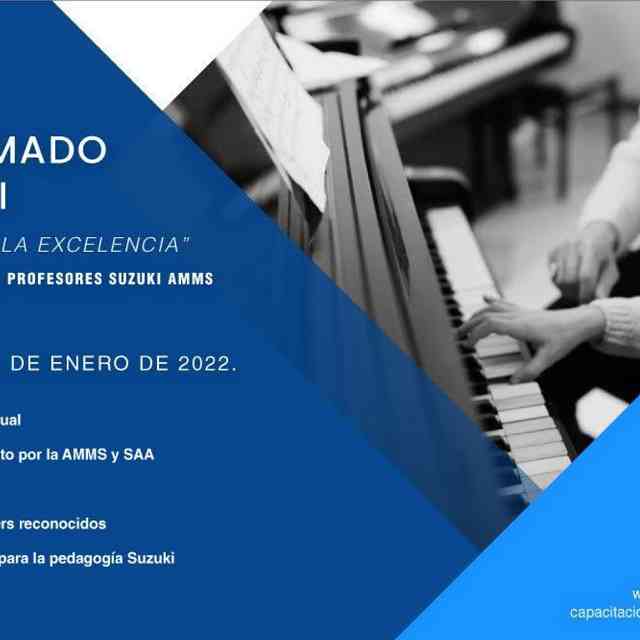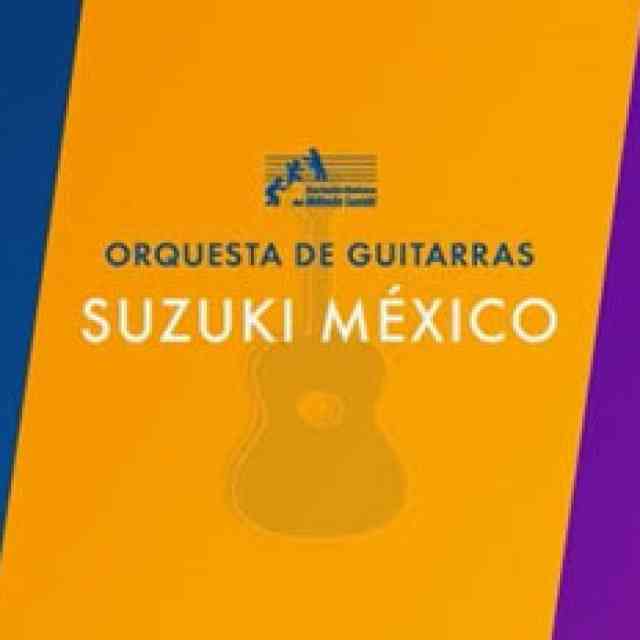“I’d rather be a sparrow than a snail…” made famous by Simon and Garfunkel, is actually a Peruvian composition, “El condor pasa” written by Daniel Alomia Robles from Huánuco. The Second National Suzuki Workshop in Peru was held in the house where Robles was born. The house is now known as the Instituto Superior de Musica Publico “Daniel Alomia Robles”.
The goal of the Suzuki Association of Peru (SAP) over the next few years is to create and support Suzuki programs throughout Peru. The so-called “provinces” are economically and geographically disadvantaged. Their reality is completely different from that of Lima. We want to make sure that the concept “Every child can” includes the children from these distant places, which seem to be forgotten and abandoned by their own government.
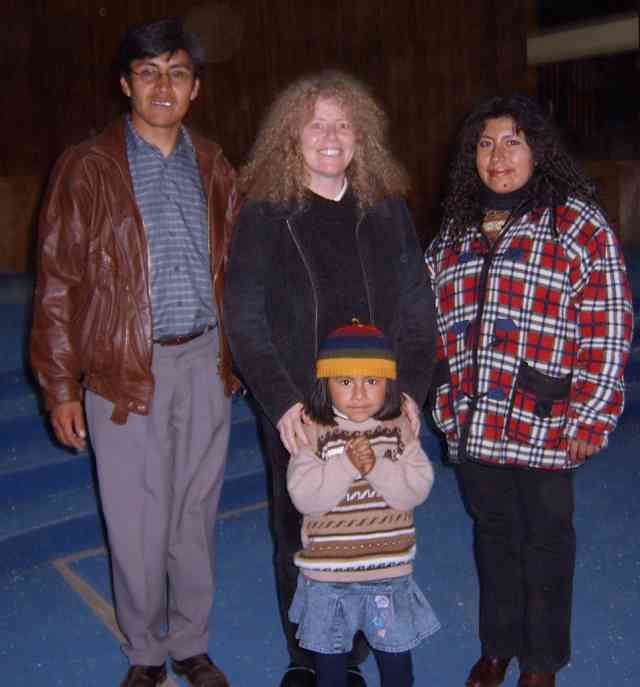
Caroline with Amador and family.
Two teachers who had attended the three-day Latin American Teachers’ Conference in Lima, held in January, returned to their own communities determined to share their experiences with their colleagues: Amador Ccala from Juliaca, and Rosario Kong from Huánuco. With tremendous initiative and leadership, they both successfully organized teacher-training workshops with unprecedented participation in each of their cities. Armed with will power and faith and very little in the way of economic resources, they have introduced the Suzuki philosophy to parents and teachers and changed their lives forever.
Both these workshops are the result of an agreement the Suzuki Association of Peru has made with the Peruvian Youth Orchestras, directed by “el maestro” Wilfredo Tarazona. Wilfredo’s dream is to create youth orchestras throughout Peru. The SAP realized that in order to fulfill that dream he needed well-trained teachers. Hence the partnership was formed. Wilfredo travels untiringly in the provinces of Peru, and urges teachers to attend the annual Suzuki festivals. The SAP helps make their attendance possible. El maestro Wilfredo started by taking the philosophy course himself and changing his own way of thinking, thereby setting an excellent example for the teachers he had invited.
In both places, the courses were approved by the Ministry of Education and the radio and television coverage was extensive.
Suzuki Philosophy Course in Juliaca, May 5-8, 2005
The organizer of this course was Amador Ccala, a cellist who was among the first group of teachers from Juliaca to attend the Suzuki Festival in Lima. At an Association meeting following the festival, he announced that he wanted to bring the Suzuki philosophy to the south of Peru. He said he would organize it and he did!
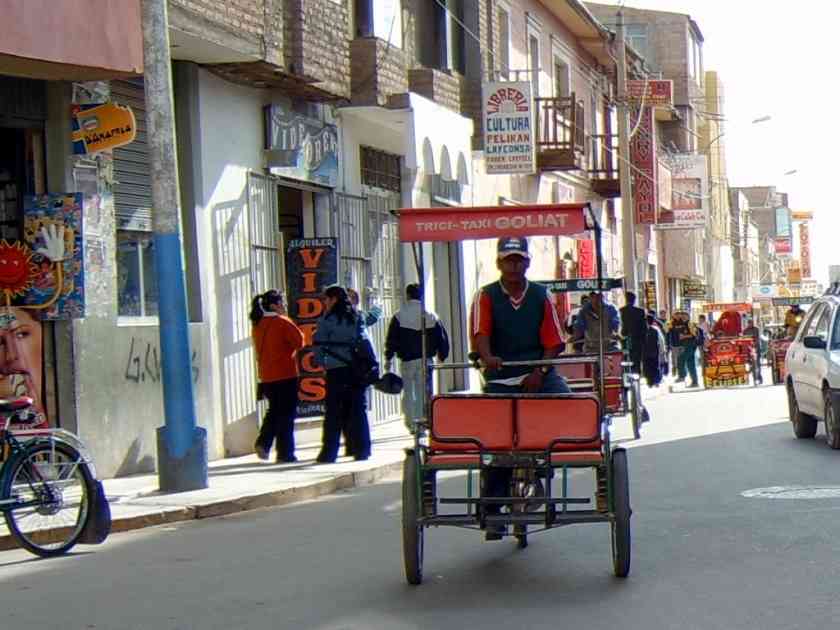
Tricycle taxi in Juliaca.
Juliaca, a city in the south of Peru about 3800 meters above sea level, is located one hour from Puno, Lake Titicaca and the Bolivian border. I traveled to Juliaca the day before the course was to begin in order to acclimatize myself to the altitude. Local musicians playing traditional music greeted the passengers as we collected our bags. Amador was there to meet me and take me into the city. He told me that people were just beginning to register for the course. The streets of Juliaca are crowded with large tricycles, which transport entire families and farmers with their goods to sell in the market. In the morning, the streets look very colorful as the tricycles carry children dressed in their uniforms to school. Each taxi tricycle has its own name. The photograph depicts “taxi Goliath”.
The music school is in a commercial centre where internet cafes, photocopying services and street vendors abound. I had forgotten to bring the Association stamp with me, but I was told that was not a problem. They can make anything in Juliaca, and sure enough the following day a stamp identical to the one I had on a sample certificate had been produced. The first night I was taken to three television stations for interviews. Because I was introduced as the Scottish teacher, the newscasters were all very interested to find out about Scotland! The strong sun during the day contrasts with piercing cold at night. I rested fitfully because of lack of oxygen.
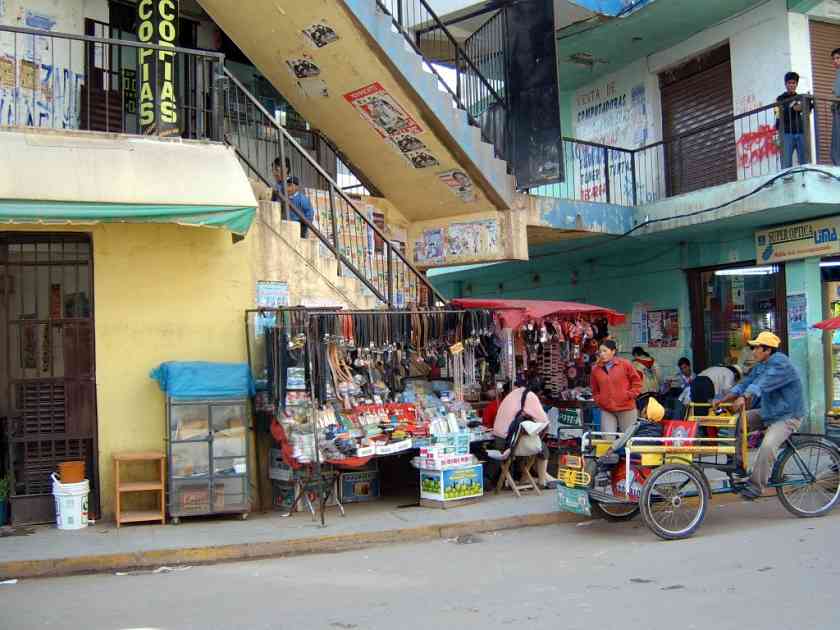
Stairs to Escuela Superior de Formacion Artistica Publica in Juliaca.
The next day the course started. It took place at the Escuela Superior de Formacion Artistica Publica. Over fifty people came to register! There simply was not room for any more. A group of teachers had traveled many hours by bus from Cusco and nearby Sicuani. One teacher had come from Huáncayo. A mother sat in the back of the class nursing her baby, Efigenio. In the Escuela de Musica students planning to make music a career start their instrumental instruction at the age of 17. Many are students of band instruments. For them, Dr. Suzuki’s message “we must start younger” was revolutionary and left a deep impact on the students, teachers and administrators.
A delegation of more than fifty teachers, students and parents came from Cusco to participate in the master classes and to give a final concert. I gave piano and violin master classes to these children for the participants to observe. The one Suzuki student in Juliaca, four-year-old Evelyn, the daughter of Amador, who had started to play the violin during the January festival, also came forward for a lesson. She performed her takataka taka beautifully and with confidence. As there was no piano, we used a clavinova. The children were unperturbed when frequent problems with the electricity caused us to stop the class temporarily. They simply got off the bench and helped check the outlet and then hopped back on. The same clavinova was transported to the locale of the final concert on a tricycle!
The final concert was superb. After the Suzuki repertoire was performed on violin, guitar, recorder and clavinova, all the students joined together in ensemble to play and sing traditional Andean music. The public was thrilled. The next day, as we said goodbye, the teachers in Juliaca asked me if they too could form an Association as the Cusco teachers had done. I realized how important the participation of the tour group from Cusco had been. Thanks to Flor Canelo, piano teacher from Cusco whose idea it was to support the Juliaca workshop in this way. Flor announced at the concert that the Cusco teachers would help and support the teachers in Juliaca in any way they could. Teachers in Juliaca are now planning to make the five-hour bus journey to Cusco to take and observe lessons, before attending the annual festival in Lima. Our family continues to grow and become stronger thanks to Dr. Suzuki’s philosophy. Every child can, including the children from Juliaca.
II Nat’l Suzuki Workshop in Huánuco, June 10-13, 2005
Lucha del Rio and I traveled to Huánuco on a tiny airplane. It was so small that the co-pilot had to kneel before us as he gave the flight instructions. Huánuco is situated high in the mountains, close to the Peruvian jungle. Our flight went smoothly and the view was awesome. Upon landing, we came across the sign “Welcome to Huánuco, the city of eternal spring”. I later learnt from the local residents that Huánuco has the reputation of having the best climate in the world. After the damp, grey Lima winter, it was a pleasure to enjoy the sunshine and blue sky. We were met by el Maestro Wilfredo Tarazona and one of the workshop’s organizing committee, Cristian Cachay.
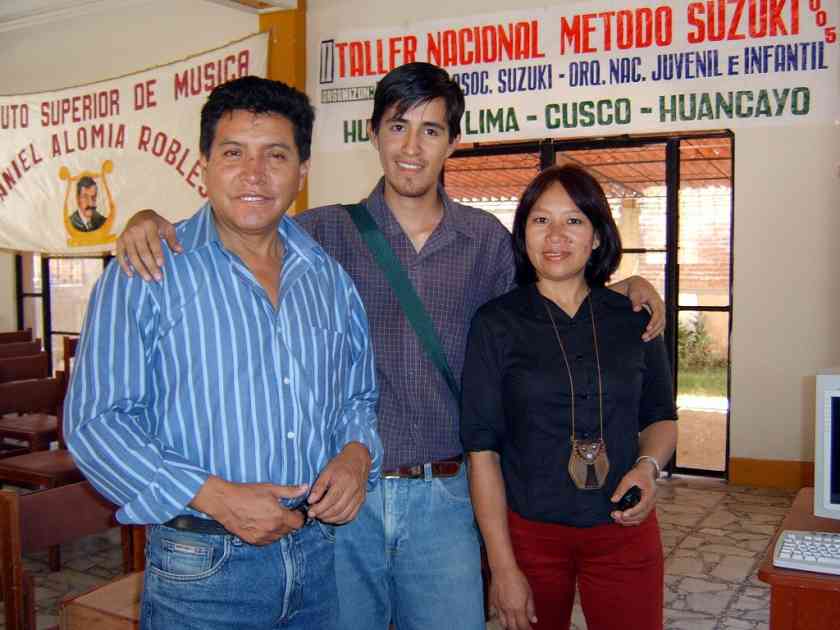
Teacher Wilifredo Tarazano with Huánuco organizers, Cristian Cachay and Rosario Kong.
The workshop took place in two locales; the course work was given in Huánuco’s Central Club and the master classes were held in the Superior Institute of Music “Daniel Alomia Robles.” Rosario Kong, known as Charo, had told me they were hoping to have the participation of 40 teachers. They did not expect that over 90 teachers would appear.
Lucha and I had asked for equipment for PowerPoint and VCDs. I had two young men on hand throughout the course who not only ran the equipment, but suggested how I could use it better, flashing pertinent information up on the big screen instead of laboriously writing on the whiteboard. The teachers took philosophy in the morning and early childhood music in the afternoon. Meanwhile over sixty children took violin, cello and recorder lessons.
SAP teachers Annika Petrozzi, cello, Alexis Guillen, recorder, and Isaac Garcia had traveled for twelve hours by bus from Lima to work with the children. Isaac also brought with him three of his own students accompanied by their mothers. I gave violin master classes to enthusiastic young children eager to learn. All parents were present during their lessons. The children and their parents simply arrived at the beginning of the afternoon and waited their turn. Some were waiting for more than three hours before they received their lessons. It was liberating to feel free to stop the lesson when the lesson was over and not be ruled by the clock! The final concert was a huge success with the space filled to capacity. In addition to the Suzuki repertoire, the guitar students led by “profesor Isaac” and three young violinists gave a moving performance of the music the whole city is so proud of: El Condor Pasa.
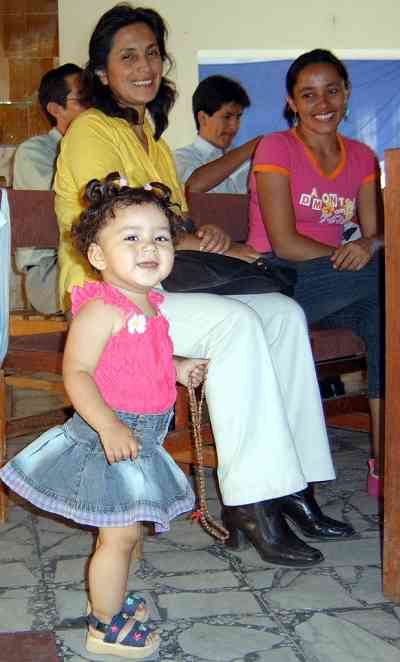
Huánuco festival participants.
Offering philosophy and early childhood music simultaneously turned out to be an excellent combination. The teachers left having profoundly changed their way of thinking and, thanks to the early childhood music course, were able to put ideas into practice immediately. The day after the course finished as Lucha and I were walking in the main square, we met a young man who had been in the courses. With a big smile and full of joy he said “Ya empecé!” (I’ve already begun!). He had just been teaching the children at his school.
As we had our last lunch at the local vegetarian restaurant, our waitress asked us when we were coming back to Huánuco. She said the participants had told her that it had been a wonderful experience taking the courses, and that they would now change the way they treated their students and their own children.
Charo is already planning to take a tour group to Tingo Maria in the jungle, just two hours from Huánuco. She is determined to bring the philosophy to the schools and change the whole approach to education. Dr. Suzuki was right. We can change the world, one person at a time.


